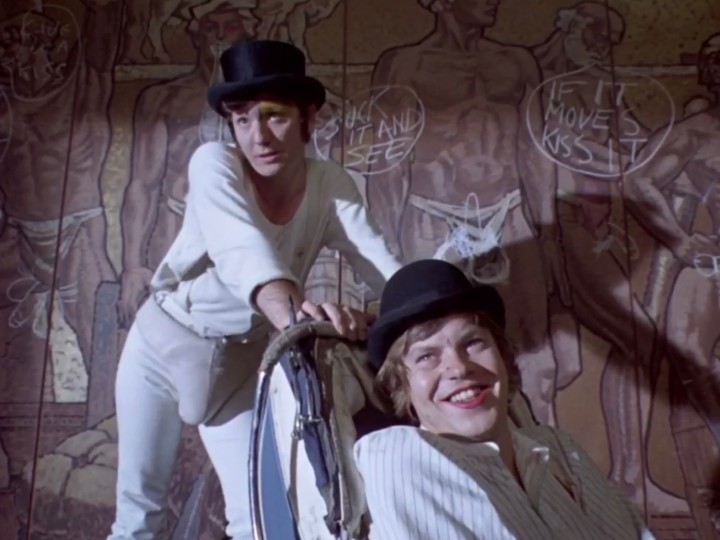

The way the narrator narrates his younger self committing these acts of violence is in a tone of retrospective joy. I, however, am going to demonstrate that there is no change. The counter argument to my proposed ending of the book at III 6 will be to locate evidences in the novel that supports the transformation of the narrator. However, the contrary seems to be true because the narrator is not contrite at all for the violence that he has inflicted thus far. If this quote is true, it would mean that the narrator is contrite about the acts of violence he has committed as a youth because he has changed. The quote from the introduction written by Burgess implies that there is a distinctive relationship between the narrator and his younger self, the one who goes through the events. The disputed ending by the readers is an unintended consequence on Burgess’ part.

However, the readers’ sense of reading comes from the narrator, due to the first person narration of the novel, which causes the readers to interpret things differently than the author. Burgess is telling the story through his sense of retrospection as an author, by conveying his original intension which he had when he was writing the story. He wants a different kind of future” (vii-viii). The author’s claims in the introduction that: “it is with a kind of shame that this growing youth looks back on his devastating past. I am, however, arguing that the artistic appropriate ending for this novel is III 6, due to evidences in the text that suggest the narrator’s relation with his younger self that contradicts with the transformation in III 7. The readers are informed by Burgees in the introduction of the book to be our own judge as to whether the twenty-first chapter is the artistically appropriate ending for the novel in which our narrator, Alex, transforms into a human being conscious of the good in the world and chooses to be good.
#Clockwork orange narrator how to#
A Clockwork Orange, written by Anthony Burgess, describes a fifteen year old boy named Alex who only knows how to enact violence to his immediate surroundings.


 0 kommentar(er)
0 kommentar(er)
